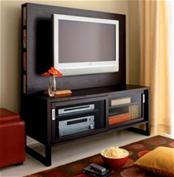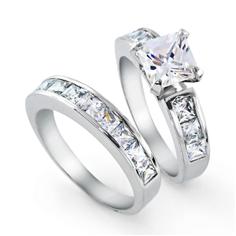|
%20thumb.jpg) Why is it so important to carry homeowners' insurance? Why is it so important to carry homeowners' insurance?
A home is the largest, most important investment most people will make. Although the exact coverage you need may vary depending upon whether you purchase a free-standing house, a condominium, townhome, cooperative, or choose to rent, in general terms this coverage protects your residence, related buildings, and their contents against most major dangers. This includes fire, extended coverages, theft, vandalism, and glass breakage. Protection for personal belongings is provided both at home and away from home (but, under certain circumstances, for reduced limits while away from home). Coverage is also provided for Personal Liability as well as Additional Living Expenses. Valuable items may be scheduled for additional, broader coverage.
How much insurance do you really need?
Find out how much it would cost to rebuild your home. The amount of insurance you buy should be based on rebuilding costs, not the price of your home. The cost of rebuilding your house may be higher then the price you paid for it or the price you could sell it for today. You should also take into account any improvements or additions made to your home since your insurance was last reviewed. If you live in a community association, you should be aware of what items the association's governing documents require you to insure and provide this information to your agent so that they may properly assess your individual needs.
What about personal belongings?_thumb.jpg)
Make a list of all your personal possessions. Include indoor and outdoor furniture, your clothing, appliances, stereos, computers and electronic equipment and other personal belongings. Don't forget items located in the attic, basement, and garage as well as your landscaping and fencing. Your agent can provide you with a form to assist you in the inventory process. You may also find it helpful to videotape or photograph each room of your house. Afterwards, store the video or photographs along with your inventory list in a safe deposit box or leave it with a friend or relative for safe keeping.
 What's it all worth? What's it all worth?
If your property does get damaged, destroyed or stolen, the insurance company will use one of two ways to determine its value:
-
- 1. Actual Cash Value: The replacement cost of the items minus depreciation. For example, a new television set may cost $500. If your 7 year-old set gets damaged in a fire, the value may have depreciated by 50% limiting the amount of your coverage to $250.
- 2. Replacement Coverage: The cost of replacing an item without deducting for depreciation. This means that today's cost for a TV set with features similar to the 7 year-old one damaged by the fire would dictate the amount of coverage. If it still costs $500 today, that would be the amount you could receive.
You can select which type of coverage you would prefer. Having replacement coverage adds only about 10% to 15% to your annual premium and may well be worth the slight increase.
How about those valuables?
Do you own fine jewelry, furs, or silverware? Do you possess a musical instrument, computer equipment or high-value camera? Do you play golf? Do you collect fine arts, coins, stamps, or firearms? All policy forms provide you with limited coverage for these items as well as money, precious metals, securities, manuscripts, boats, and equipment. If these limits are too low, consider buying coverage on these items for their "scheduled" worth.
So why do I need Liability Protection?
You need it because, as a property owner, you can be held legally responsible - personally liable - for bodily injuries to visitors while they are on your property. Your homeowners' insurance will cover legal claims brought against you for such injury and pay the damages if you are proven to be at fault. Regardless of who is at fault, your homeowner's insurance will pay medical bills in the case of bodily injury to others on your property. Your personal liability coverage also extends to cover all bodily injury to others on your property. Your personal liability coverage also extends to cover all bodily injury and property damage caused by you, a family member or a pet, at home or elsewhere.
How much Liability Coverage is enough?
In the event of an accident or personal injury, medical and legal expenses can mount quickly. Your basic automobile or homeowner’s policy is probably well-equipped to handle most day-to-day occurrences. In the event of a severe injury, or even a death, those kinds of expenses can mount even more quickly and become astronomical. Don't take basic liability coverage for granted, especially if you have "attractive hazards" such as a swimming pool or "frisky" pets. In today's society, lawsuits have become increasingly common and huge liability awards more frequent. Personal Umbrella Liability is designed to provide you with excess coverage over and above your scheduled primary Personal Liability coverages (Personal Liability under your Homeowners Policy, Personal Automobile Liability, Boat Liability, etc.).
ANYTHING ELSE?
Don't ignore Flood & Earthquake Insurance:
"It can't happen here" has cost many a homeowner thousands of dollars and countless grief. Neither peril is covered under standard policies -check them out!
_thumb.jpg)
Tips to Save By
Many companies offer a variety of attractive discounts* including:
- Age of Dwelling Credit
- Non-Smokers Discount
- Smoke Alarms Credit
- Central Station Burglar Alarm Credit
- Discounts Based on Proximity to Fire Stations and Hydrants
- Retired Persons Discount
(*Consult your agent regarding eligibility; some programs & discounts may not be available in all states or territories.)
Choose an appropriate deductible.
The higher the amount of a property loss you elect to "self-insure," the lower your premium is likely to be. Although $250 is fairly standard, $500 is affordable for most homeowners.
Contact our friendly staff of professionals for further information and a competitive quote.
|